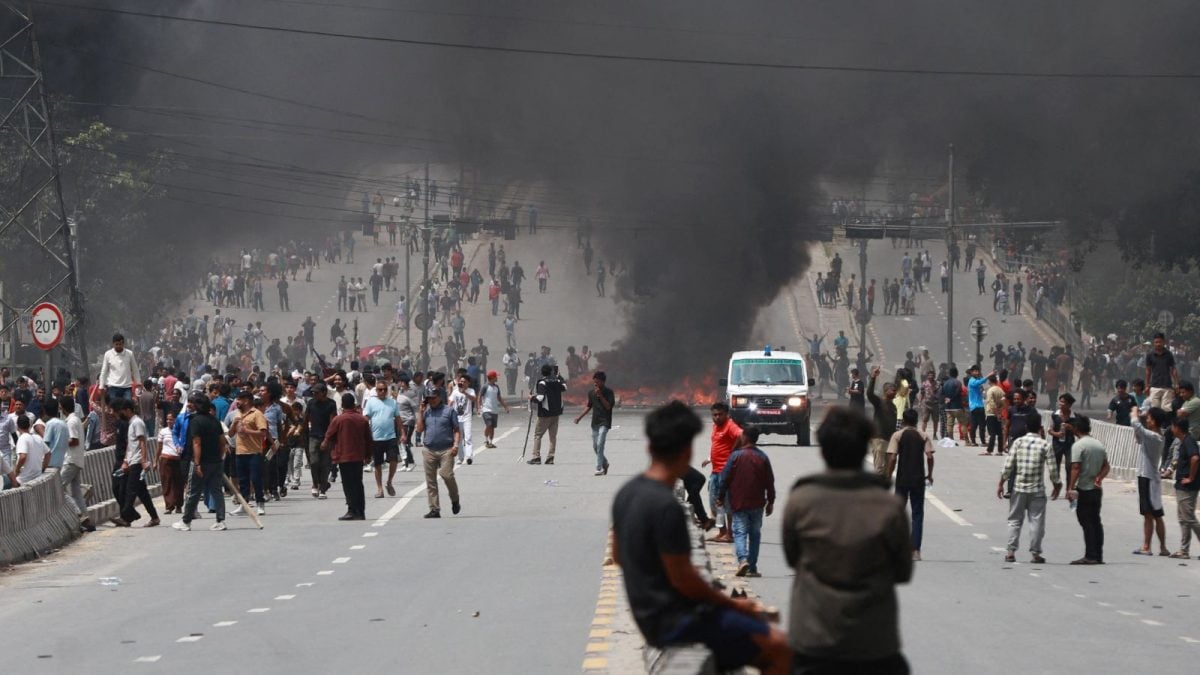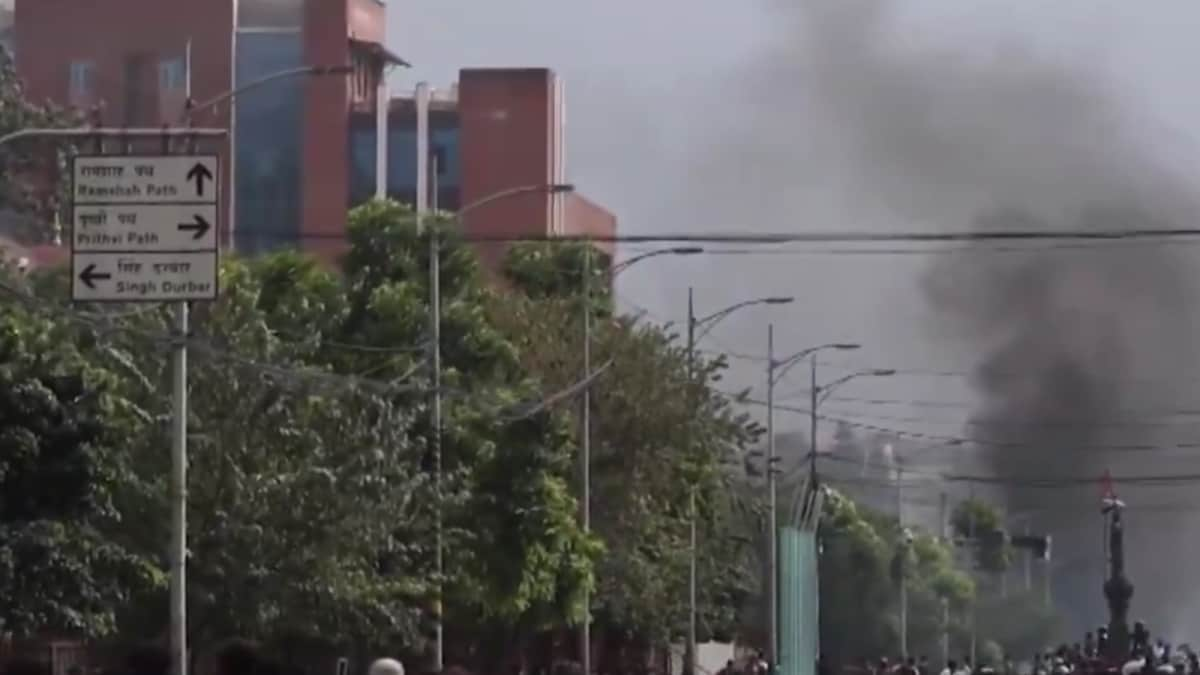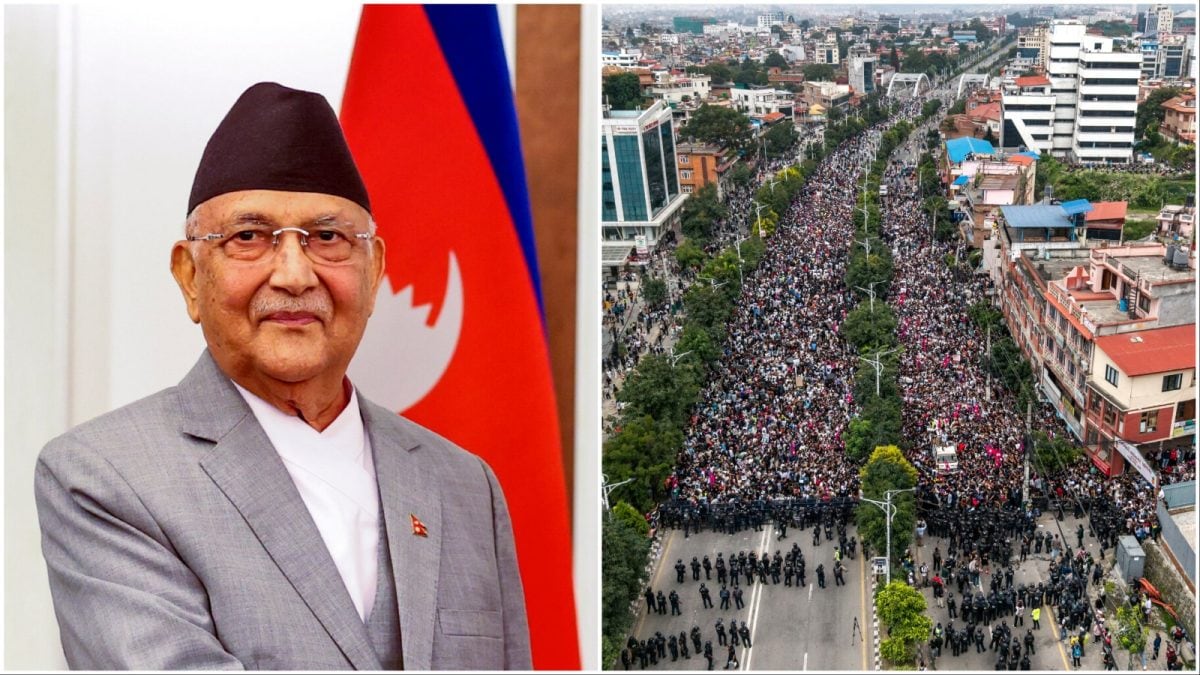Last Updated:September 09, 2025, 15:33 IST
Balen first emerged not in politics but in music. His sharp verses in underground rap battles made him a household name. He has a reputation for decisiveness, even defiance

In 2022, Balen Shah stunned Nepal’s major parties by winning the mayorship of Kathmandu, running as an independent candidate. (Photo: Instagram/@balenshah)
As Nepal stands in the midst of a generational shift, with Prime Minister KP Sharma Oli stepping down on Tuesday afternoon, the country’s Gen Z population is looking beyond traditional parties and leaders to lead the country.
At the centre of their hopes is an unlikely figure—Balendra Shah, better known as Balen, a rapper-turned-engineer-turned-mayor who has rapidly become one of the most popular public personalities in the country.
His rise tells a bigger story: the exhaustion of old politics, the anger over corruption and censorship, and the search for leaders who speak the language of the streets as much as that of governance.
From Hip-Hop Stage To City Hall
Balen first emerged not in politics but in music. In Kathmandu’s underground rap battles, his sharp verses and freestyle takedowns made him a household name among young Nepalis. While still active in music, he pursued civil and structural engineering, giving him a reputation as both a cultural and intellectual figure.
That dual identity carried into politics. In 2022, running as an independent candidate, he stunned Nepal’s major parties by winning the mayorship of Kathmandu. His campaign focused on issues many traditional leaders had ignored: garbage collection, traffic chaos, illegal construction, and urban mismanagement. His victory marked a watershed moment—proof that a candidate with no party machinery could take on the establishment and win.
A Mayor Who Refuses To Blend In
Since taking office, Balen has governed with an unorthodox, often confrontational style. He broadcast city meetings live, took bulldozers to illegal buildings, and directly challenged municipal officials accused of neglecting their duties. These actions made him a hero to many and a thorn to others.
Where traditional leaders operated through party consensus, Balen cultivated a reputation for decisiveness, even defiance. He embodied the frustration of young Nepalis tired of endless political bargaining that yielded little change. In the process, he reshaped the idea of what leadership in Nepal could look like.
Gen Z’s Political Awakening
Nepal’s Gen Z has grown up in a turbulent era—shaped by the civil war’s aftermath, constant government changes, and rising unemployment. Social media became their outlet, a place to vent, organise, and dream.
But when the government announced bans on major social media platforms, claiming security concerns, young people saw it as an attack on their freedom. Protests erupted across the country, with students and activists flooding the streets. What made this wave of dissent different was its leadership: not older politicians or established unions, but teenagers and twenty-somethings carrying placards, memes, and hashtags.
Amid this, Balen openly supported the demonstrators. Even though he could not participate in the rally due to the under-28 bracket, the 33-year-old mayor voiced strong support for the movement in a Facebook post. “My full sympathy is with the youth," he wrote, urging political leaders not to take part in the agitation for personal or party gains. To the youth, this confirmed what they already felt: that he was their voice inside the system.
Beyond A Local Leader
The appeal of Balen goes far beyond his mayorship. For many Nepalis under 30, he represents something unprecedented: a leader untied to political dynasties or party hierarchies. His rise proved that authenticity, performance, and relatability could beat decades of entrenched political machinery.
Recent youth surveys showed overwhelming preference for him compared to older leaders. Established party heads, who once dominated Nepal’s political imagination, hardly registered in the minds of Gen Z voters. The message was clear: this new generation no longer sees its future in the old order.
A Test Of Political Transition
With PM Oli resigning, the political vacuum is widening. Traditionally, such moments lead to backroom deals among established parties. But the climate feels different this time. Youth protests, economic stagnation, and widespread discontent mean that whoever emerges next will be under immense pressure to deliver.
Balen is being seen not just as a mayor but as a possible national figure. His grassroots story, outsider credentials, and cultural connection to the youth make him the natural focal point for a generation demanding change.
But questions remain. Running a city and running a nation are different challenges. Kathmandu’s governance has highlighted his boldness, but it has also shown his limits. Clashes with other municipal leaders, accusations of recklessness, and the sheer scale of Nepal’s structural problems raise doubts about whether his style can scale to national leadership.
The Digital Rights Dimension
The current crisis is about more than just leadership—it is also about rights. The shutdown of social media platforms struck a nerve in a country where digital space has become the lifeline for education, small businesses, and activism. For young entrepreneurs, the ban cut into sales and marketing. For journalists and activists, it limited their reach. For everyday users, it felt like a gag order.
Balen’s alignment with the protests places him squarely at the heart of this debate. To many, he represents the defence of digital freedom and modern citizenship in a country still weighed down by hierarchical politics. His ability to speak the language of both governance and youth culture gives him a unique advantage in navigating this moment.
What Lies Ahead?
Nepal now stands at a crossroads. On one side lies the familiar path of rotating party leaders, coalition bargaining, and slow-moving reforms. On the other hand lies a restless generation ready to disrupt the political order, fuelled by anger at corruption and eager for leaders who understand their realities.
Balen Shah embodies that second path. Whether he can translate his mayoral success into national leadership remains uncertain. But reports suggest that Nepal’s Gen Z has already anointed him as their political symbol, the face of a future they want to claim.

Shilpy Bisht, Deputy News Editor at News18, writes and edits national, world and business stories. She started off as a print journalist, and then transitioned to online, in her 12 years of experience. Her prev...Read More
Shilpy Bisht, Deputy News Editor at News18, writes and edits national, world and business stories. She started off as a print journalist, and then transitioned to online, in her 12 years of experience. Her prev...
Read More
First Published:
September 09, 2025, 15:09 IST
News world Nepal Protest: Who Is Rapper-Turned-Mayor Balen Shah Whom Gen Z Wants As Their Next Leader?
Disclaimer: Comments reflect users’ views, not News18’s. Please keep discussions respectful and constructive. Abusive, defamatory, or illegal comments will be removed. News18 may disable any comment at its discretion. By posting, you agree to our Terms of Use and Privacy Policy.
Scan the QR code to download the News18 app and enjoy a seamless news experience anytime, anywhere

Scan the QR code to download the app
OR

 5 hours ago
5 hours ago














